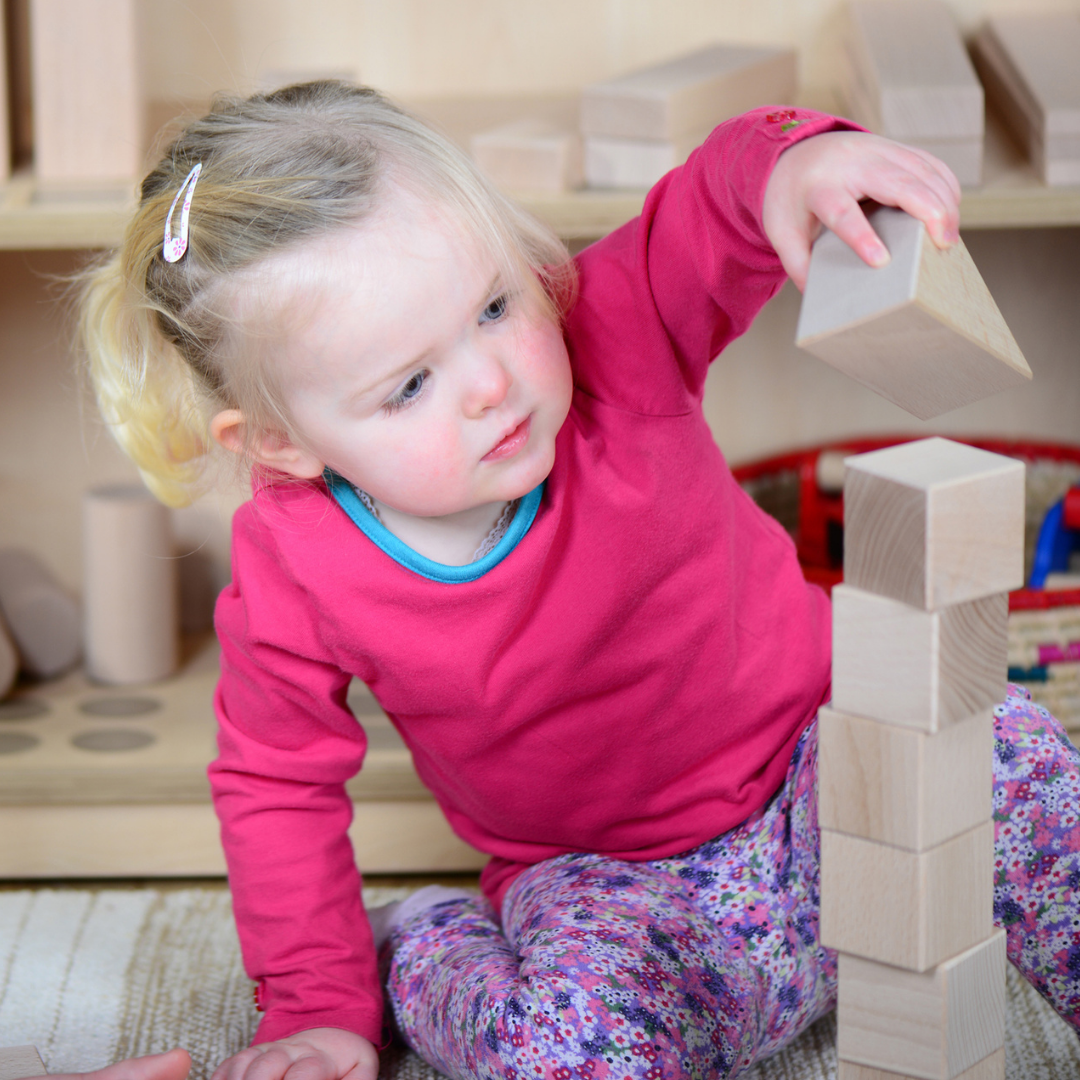Repetitive play: is it ok?
“A large proportion of children in my class are just not interested in any of the activities I provide. They are not interested in the provision or in engaging in any adult directed activities. They just keep returning to the same repetitive activities all day every day. I just can’t get them to try anything new, despite lots of modelling and engagement from adults. I’m at a loss as to how to support them in their learning and development. I just can’t see how to move forward.”
Does this sound familiar?
The reality is that children have missed out on vital learning in their earliest and most crucial years due to the pandemic, and now we’re seeing the impact of that in schools and settings. Do you have children in your class who consistently repeat the same actions and behaviours; perhaps moving things from one place to another, putting things into bags or containers and moving them around, or perhaps they are even throwing things? They might well be engaging in schematic play.
What is schematic play?
Schematic play is when children engage in the same repeated patterns of behaviour, as they explore an idea that interests them. Children may return to the same activities, concepts or fascinations every single day. These repeated patterns of play are known as schemas.
Often it is toddlers who engage in schematic play but because of the impact of the pandemic and as many children may not have had the opportunities to encounter schematic play, it’s likely that children in Nursery or Reception may still be exploring through schemas.
Schematic play is a natural process that children will go through when trying to figure out the world around them. They are devising mental models and developing processes to find efficient ways to complete tasks or achieve their goals. Of course, these mental models will develop over time with practice. Even as adults, schemas help us. When we’re faced with new challenges, we revert back to previous mental models, using these as a springboard to support our thinking. That process of schematic play was important for us to go through as children.
Types of schemas
There are many different types of schemas that young children may go through and it’s important that we plan to support children through their schematic play. We’re going to focus on 6 of the main types of schemas:
- Transporting: Children enjoy repeatedly moving resources, and themselves, from one place to another. They may also enjoy filling bags or containers with objects and moving them to another place before tipping them out. You could provide blocks, loose parts, shopping baskets or bags and vehicles such as wheelbarrows and sack trucks to encourage children to pick up, move along and put down objects.
- Connecting: Children enjoy investigating how materials can be linked and their relationship to one another. You could provide different types of pipes and guttering outdoors with water play to support the idea of connecting, or consider adding creative resources to your provision such as staplers, ties, scissors and glue.
- Rotational: Children display a preference for turning taps on and off, winding and unwinding string, and they enjoy the physical experience of twirling and twisting their bodies or rolling themselves down a hill. You could provide bikes and trikes as well as opportunities for children to push trolleys, tyres and wheelbarrows around. Consider playing parachute and circle games with groups of children too.
- Trajectory: Children show a keen interest in the horizontal, vertical and diagonal movement of things and themselves. They may enjoy lining up objects, for example creating rows of different animals. You can support children with this schema by providing blocks and crates for them to stack, knock down and rebuild. Planks are also great for making ramps and rolling objects down: outdoors is a great space for children to engage in this schema.
- Enveloping or enclosing: Children are particularly interested in wrapping themselves up, covering and hiding things or getting into boxes and closing the lid. They may be deeply involved in exploring how they and items can be inside other objects. You could provide den-building equipment, dressing-up clothes, blankets and pieces of fabric. Boxes, barrels and tunnels are also great for hiding in.
- Transforming: Children are fascinated by how materials change their state and they enjoy mixing substances together. Changes in the seasons offer children opportunities to experience rain, freezing conditions and melting ice. You could offer materials such as sand, paint, mud and soil for mixing and discovering how materials change consistency when wet or dry.
Remember: if you’re feeling anxious or frustrated that your children are not choosing to engage in specific planned activities, it’s important to stand back and observe. Are your children engaging in repeated patterns of play? If so, what might those schemas be? Then you can consider how you can plan to best support these: which resources can you provide in your continuous provision, what enhancements can you include and what adult support might be needed?
Here are some key questions to consider:
- Are your children at the point in their developmental journey where they are engaging in schematic play?
- Do your continuous provision resources support schematic play?
- Do your team understand schematic play and know how best to support children with this?
- How can you embrace schematic play as part of your practice?
Find out more

Join our Let’s Explore Schemas webinar as we explore schematic play in detail, using research to inform how we plan for rich learning experiences and respond to the natural fascinations of our children.
More info

Central to effective Early Childhood Education is the skilful adult. Explore the concept of Sustained Shared Thinking, and how we can use it as a core element of our practice to improve the quality of our interactions and outcomes for all our children.

Discover our programme of webinars and bespoke INSET designed to up-skill teams and help you stay connected to best practice including a series of webinar packages for Heads, EYFS & KS1 leaders, Teachers and Early Years Support Staff.
